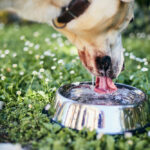What Happens If My Dog Bites Another Dog In Florida
When dogs interact, there is always a risk of conflict. Even friendly dogs can get into scuffles over resources, territory, or social status. However, when one dog bites another dog in Florida, the legal and financial consequences can be serious for both the owners and the animals involved. In this article, we will explore what happens if your dog bites another dog in Florida, how to prevent such incidents, and what to do if you or your dog are injured.
Overview of Dog Bite Laws in Florida
Florida follows a strict liability rule for dog bites, which means that the owner of a dog is responsible for any damage or injury caused by their dog to a person or another animal, even if the owner did not know or intend the harm. Unlike some states that allow one “free bite” before imposing liability on the owner, Florida does not require proof of prior aggressive behavior or knowledge of vicious tendencies to hold an owner accountable for their dog’s biting. This means that even if your dog has never bitten anyone before and you had no reason to suspect that it might do so, you may still be liable for any damages resulting from its bite.
Under Florida law, a dog bite victim can sue the owner of the biting dog for medical expenses, lost wages, pain and suffering, and other damages caused by the bite. The statute of limitations for such lawsuits is four years from the date of the incident. In addition to civil liability, a dog owner who violates certain provisions of the state’s animal control laws may also face criminal charges and penalties. For example, if your dog attacks or kills another animal while off-leash or out of control in a public place or private property without permission, you could be charged with a misdemeanor or felony depending on the severity of the offense.
What Happens If Your Dog Bites Another Dog?
If your dog bites another dog in Florida, you should take immediate steps to prevent further harm and to document the incident for future reference. Here are some guidelines:
1. Separate the dogs: If the dogs are still fighting, try to distract them with loud noises, water, or physical barriers. Do not try to separate them with your hands or body, as you may get bitten yourself. If possible, ask someone else to help you or call animal control.
2. Check for injuries: Once the dogs are separated, check both of them for wounds or bleeding. Even if your dog did not appear to bite the other dog, it may have caused scratches or punctures that can lead to infection or disease transmission.
3. Exchange information: If the other dog’s owner is present, exchange contact information and insurance details. Ask if their dog has up-to-date vaccinations and medical records. Offer to pay for any immediate veterinary expenses if your dog was at fault.
4. Report the incident: Depending on where the bite occurred, you may need to report it to local authorities such as animal control, police, or health department. In some cases, you may be required by law to quarantine your dog for a certain period of time to ensure that it does not have rabies or other contagious diseases.
5. Seek legal advice: If you receive a notice of claim or lawsuit from the other party, consult with an experienced dog bite attorney who can advise you on how best to protect your rights and defend against liability.
How to Prevent Dog Bites
Prevention is always better than cure when it comes to dog bites. Here are some tips on how to reduce the risk of your dog biting another dog:
1. Train and socialize your dog: The more your dog is exposed to different people, animals, and environments in a positive way, the less likely it is to feel threatened or aggressive towards them. Enroll your dog in obedience classes and take it on walks and outings regularly.
2. Supervise your dog: Do not leave your dog alone with unfamiliar dogs or in situations where it may feel stressed, such as crowded events, loud noises, or food fights. Keep an eye on its body language and behavior and intervene if necessary.
3. Use a leash and muzzle: In public places, always keep your dog on a leash that is no longer than six feet and use a properly fitted muzzle if your dog has a history of biting or aggression. Do not let your dog roam freely or approach other dogs without permission.
4. Spay or neuter your dog: Studies have shown that spayed or neutered dogs are less likely to exhibit aggressive behavior towards other dogs or humans. This may be due to the hormonal changes that reduce territorial and dominance instincts.
5. Educate yourself and others: Learn about the signs of stress, fear, and aggression in dogs so that you can recognize them early and prevent escalation. Teach children and visitors how to interact with your dog safely and respectfully.
Conclusion
In conclusion, if your dog bites another dog in Florida, you should take responsibility for the consequences and follow the legal and ethical protocols to minimize harm to all parties involved. By understanding the risks of dog bites, learning how to prevent them, and seeking professional help when needed, you can ensure that your furry friend remains a beloved companion rather than a liability or danger to others. Remember, every dog deserves a chance to be happy and healthy!



